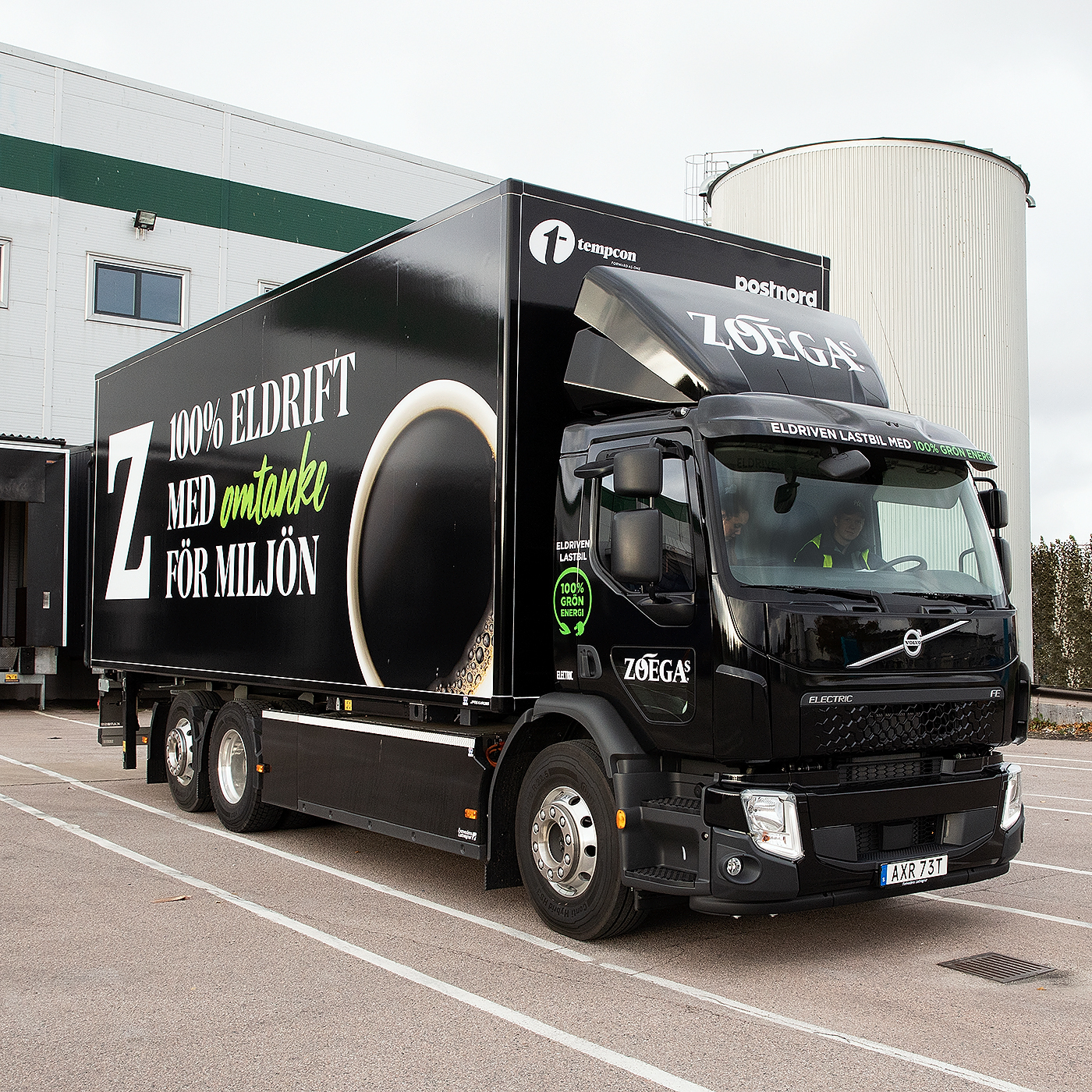For us at the Tempcon Group it is a matter of course that we offer our customers safe, sustainable and climate-efficient logistics solutions and thereby generate added value. At the same time, we are keen to be at the forefront in incorporating new, innovative technology to further reduce our climate footprint. As part of our long-term work with sustainability, in 2020 we brought into operation a large number of natural gas cars as well as Sweden’s first heavy electric truck for use in daily operations. Being able to offer a fully electrified transport solution feels like a natural step for us towards the future.
Tommy Nordbergh Åkeri was the first to place an order for this vehicle model from Volvo and the truck is the first mass-produced electric truck in Europe for heavy distribution. It will run daily with 150 pallets of coffee between Zoega’s coffee roastery in Helsingborg and PostNord’s warehouse in Ättekulla. The distance is about ten kilometers each way and the electric truck will make eight to nine roundtrips every day. In total, about 1 500 trips per year between the roastery and the warehouse. This new transport solution will not only result in greatly reduced environmental impact, the electric truck also emits very little exhaust and very low noise levels.
The emergence of light, electric transport vehicles has been enormous in recent years and is now joined by heavy electric trucks. Interest in electric trucks has grown to meet the expansion into charging capacity with many trucks now capable of providing up to 300 km on a single charge. The majority of electric trucks are intended for local and regional transport with train weights up to 44 tons. Electric trucks will be an important part of the transport industry in achieving the ambitious sustainability goals which have been set at the Paris Agreement amongst others. If it is to be possible to take further steps to increase the use of electric vehicles and have any impact on long-distance transport, battery capacity and charging opportunities will need to be further developed. At the same time, manufacturers are convinced that electric vehicles for demanding and heavy long-distance transports will be launched during this decade.
